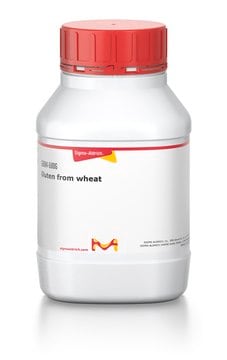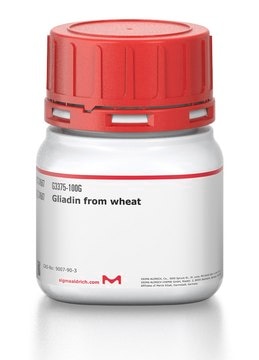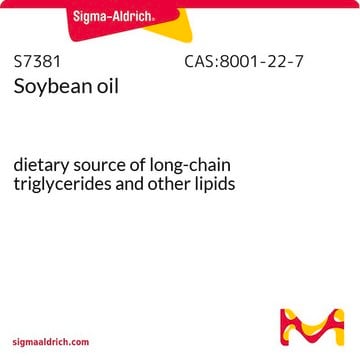S9633
Soybean flour
Type I
Sinónimos:
Soy flour, Soybean meal, Soybean protein powder
About This Item
Productos recomendados
biological source
Glycine max (soybean)
Quality Level
type
Type I
form
powder
composition
Protein, ~52% (85+% dispersible and 1% fat.)
application(s)
microbiology
¿Está buscando productos similares? Visita Guía de comparación de productos
General description
Application
- for optimizing Triton X-114 (TX-114) based lipopolysaccharide (LPS) extraction
- as a protein supplement in the in vitro fermentation of rumen fluid
- as a protein supplement in batch culture of bovine digesta to assess its degradation
Biochem/physiol Actions
Preparation Note
Storage Class
11 - Combustible Solids
wgk_germany
WGK 3
flash_point_f
Not applicable
flash_point_c
Not applicable
ppe
Eyeshields, Gloves, type N95 (US)
Certificados de análisis (COA)
Busque Certificados de análisis (COA) introduciendo el número de lote del producto. Los números de lote se encuentran en la etiqueta del producto después de las palabras «Lot» o «Batch»
¿Ya tiene este producto?
Encuentre la documentación para los productos que ha comprado recientemente en la Biblioteca de documentos.
Los clientes también vieron
Nuestro equipo de científicos tiene experiencia en todas las áreas de investigación: Ciencias de la vida, Ciencia de los materiales, Síntesis química, Cromatografía, Analítica y muchas otras.
Póngase en contacto con el Servicio técnico








